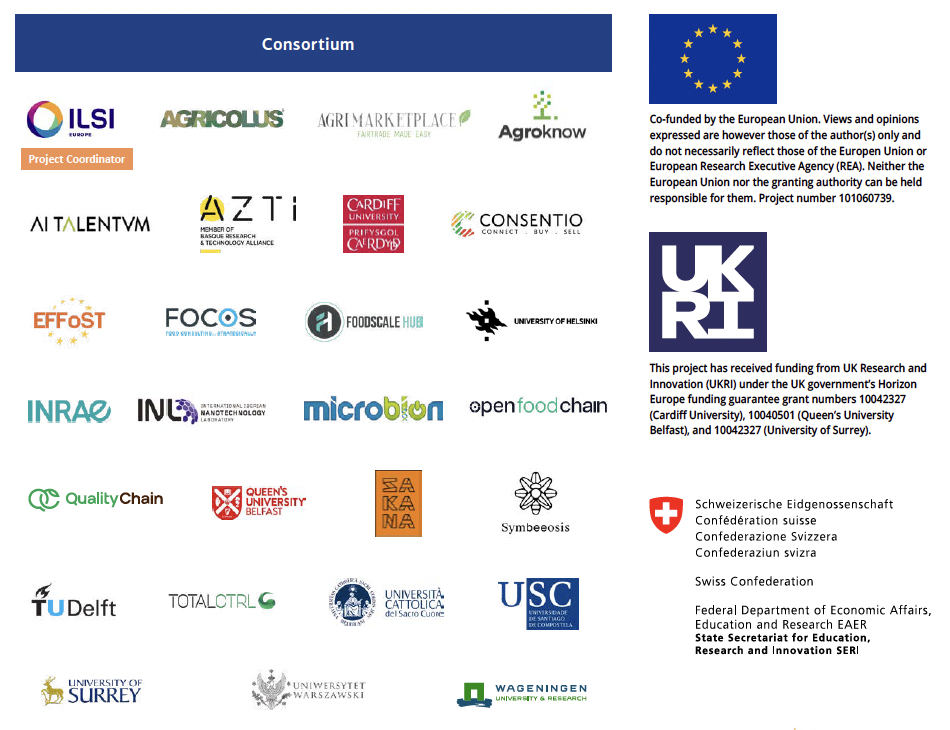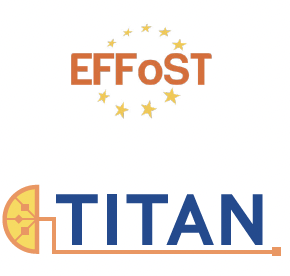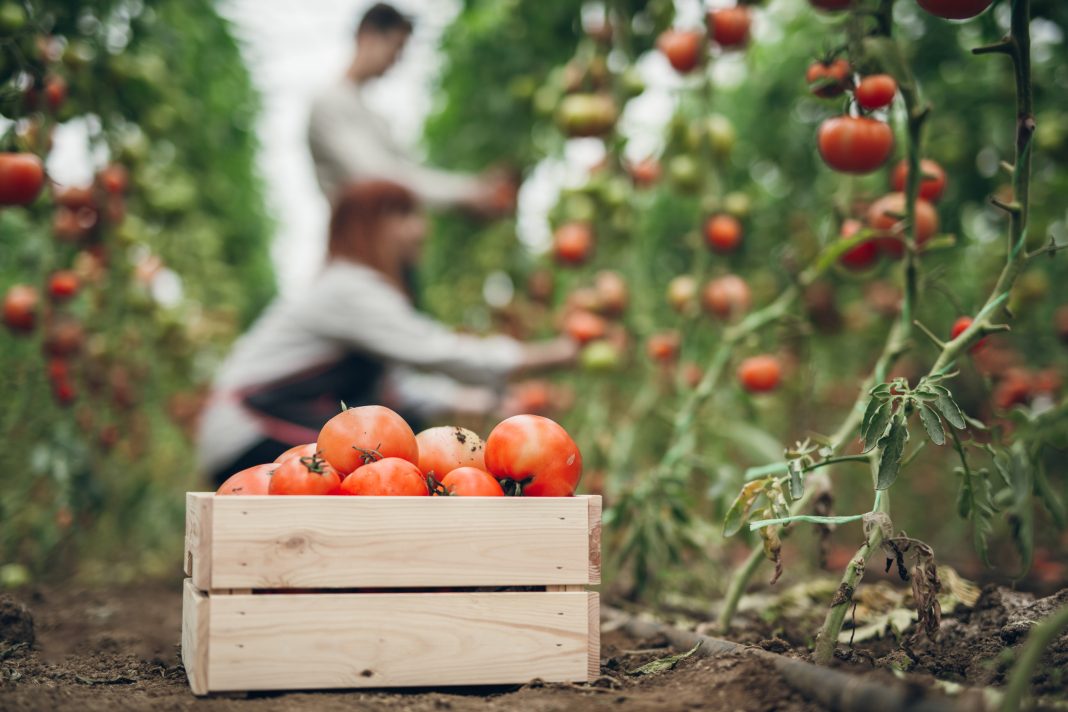The European Federation of Food Science and Technology (EFFoST) wants to revolutionise the food industry with its new TITAN Project. This four-year Horizon Europe initiative seeks to enhance transparency, improve food safety, and promote sustainability in the agri-food sector
In an interview with Open Access Governments editor Harriet Belderbos, key representatives of the TITAN project shared their insights and objectives. Below is a comprehensive overview of the project’s aims, strategies, and anticipated impact on the food industry.
Understanding the TITAN Project
Q. Can you provide an overview of the TITAN project and its objectives?
TITAN is a 4-year Horizon Europe project that will provide an extensive platform for the development of a wide range of innovations that aid transparency and address societal and planetary health to make the food system fair, healthy, and environmentally friendly.
TITAN will develop 15 innovative solutions, including exploiting DNAbased Rapid Detection Methods, Blockchain, AI, and IoT with an aim to:
- Enhance transparency in agri-food businesses with a focus on SMEs,
- Improve food choices by providing more transparent information to the consumer,
- Enhance food safety and authenticity of products and
-
Provide improved information on the health and sustainability of food products.
Empowering consumers with informed choices
Q. How does TITAN aim to enable consumers to make informed food choices, especially regarding health, sustainability, and authenticity?
To answer this question, we should explore the four key pilots within the health work package:
- Two pilots run by a Swiss start-up will develop simple, affordable blockchain and special anti-counterfeit QR codesto provide transparent and verifiable information to the consumer.
- In a third pilot the aim is to develop a 360° Healthy nutritional habits tool to provide educational content of interest to children aged 6-12 years towards healthy nutritional habits to avoid health problems caused by prolonged poor diet.
- The fourth pilot aims to establish and demonstrate a blueprint for a system that incentivises the consumption of sustainable and healthy food, both directly and indirectly, through a single health and sustainability lens – the Sus-Health index.
Facilitating supply chain sustainability
Q. Could you elaborate on the strategies TITAN employs to facilitate supply chain sustainability, including addressing social challenges and promoting economic viability?
One of the key aspects of TITAN is that the majority of the pilots are run by start-ups. These start-ups were selected based on their commitment to contribute to the UN Sustainability Development Goals. This means the companies participating in TITAN are not only interested in the economic aspect of their business but also in the impact on environmental and social aspects.
This illustrates that a commitment to Environmental and Social Governance is high on the agenda. Some of the start-ups have applied for B-Corp certification. All start-ups in TITAN get business support from the Food Scale Hub and benefit from WageningenUniversity’s scientific analysis of the food supply chain.
This holistic approach ensures that economic viability is balanced with
environmental and social responsibility.
Innovations in technology
Q. What are some of the innovative technologies being developed and implemented within the TITAN project, and how do they contribute to its goals?
The new technologies that are being developed in TITAN fall roughly into two categories:
1. Rapid detection methods
2. Digital technologies
The TITAN project showcases a range of cutting-edge technologies divided into two main categories: rapid detection methods and digital technologies. DNA-based detection methods are being developed to perform on-site analyses, which can be crucial in instances of suspected food fraud.
Additionally, digital technologies such as blockchain, Web3, Big Data, AI, and IoT are being implemented in 12 of the 15 pilots. The project faces challenges with interconnectivity and IoT, which are being addressed with the support of the Technical University of Delft to ensure compliance with privacy regulations.
Enhancing traceability in supply chains
Q. How does TITAN approach the concept of traceability in supply chain management, particularly in detecting the first mile of a product’s supply chain?
The concept of traceability is key to our activities. Companies can only be transparent about their activities and products when they have their internal traceability properly in place. Preferably this is done digitally.
The implementation of digital traceability systems is strongly stimulated by recent regulations that ask business operators to be able to share data on specific topics and at a
specific speed. Examples of such regulations are:
- Food Safety Modernization Act (FSMA) in the US,
- Corporate Sustainability Due Diligence Regulation (CSDDR) in the EU,
- Corporate Social Responsibility Regulation (CSRD) in the EU,
- EU Deforestation Regulation (EUDR),
- EU anti-greenwashing Law,
- EU Green claims directive,
- General Data Protection Regulation
(GDPR) in the EU, - EU AI ACT (EUAIA) in the EU.
The CSDDR, CSRD, and the EUDR are especially relevant for initiatives to detect the first mile of food products. Food producers and retailers have to show that the products they produce, and sell are free from forced labour and cannot be linked to deforestation. TITAN has one pilot that ultimately aimsto guarantee a forced labour-free shrimp supply chain using blockchain technology and scannable QR codes.
A comprehensive food system approach
Q. In what ways does TITAN take a food system approach in its activities, considering the entire chain from production to consumption and addressing sustainability, climate change, and biodiversity recovery?
It is quite a complicated exercise to properly follow the food system approach.
According to the FAO, a sustainable food system (SFS) is a food system that delivers food security and nutrition for all in such a way that the economic, social, and environmental bases to generate food security and nutrition for future generations are not compromised. This means that:
- It is profitable throughout (economic sustainability);
- It has broad-based benefits for society (social sustainability); and
- It has a positive or neutral impact on the natural environment (environmental sustainability).
In TITAN, we try to follow the food system approach in all the pilots. This means, among other things, that we mainly focus on foods that are part of a plant-forward diet, like fresh fruit and vegetables, cereals and nuts, and seafood. The topics of the pilots on sustainability vary from precision farming to open marketplaces for fresh produce and cereals to the detection of the first mile of seafood to the reduction of food waste in hospitality.
Notable pilot projects for TITAN
Q. Can you discuss any notable pilot projects within the TITAN consortium and their contributions to the project’s overall objectives?
TITAN started with 15 pilots in food safety (5p), sustainability (6p), and health (4p). The FoodScale Hub organized an open call, which brought in 8 additional pilots. The mention of pilots in the text of this article refers to the start set of pilots.
More information about all pilots can be found on the TITAN website. The pilots share the intention to promote sustainability, develop new technologies, and create solutions that allow different systems and sensors to operate in interconnected ways.
Collaboration with stakeholders
Q. How does TITAN collaborate with stakeholders across sectors to achieve its goals, such as industry partners, research institutions, and governmental organizations?
TITAN is supposed to build a Network Of Expertise that will continue to function after the end of the project. After a thorough analysis, we have decided to focus on 4 Key Expertise
Areas (KEAs): (i) Enabling consumers to make informed food choices, (ii) facilitating supply chain sustainability, (iii) development and implementation of new innovative technologies, and (iv) taking the food system approach.
Each KEA was subdivided into Expertise Areas (EAs), which resulted in the formation of 33 working groups. The ideal is to have at least 8 participants in each working group, of which at least 5 external experts. TITAN is indeed looking for representatives from governments, academia, industry, and society. The working groups will be consulted about topics like education and policy recommendations and will be involved in the organisation of the Final Event. After 18 months, TITAN already had 114 external stakeholders.
In their activities Cardiff University focuses specifically on collecting input from policymakers. They will coordinate the delivery of the policy roadmap.
Challenges and future plans for TITAN
Q. What are some of the challenges or obstacles that TITAN has faced in its implementation, and how has the project addressed them?
It is always a challenge to build a consortium with 20+ partners coming from Academia, industry and NGOs with different interests and backgrounds. One of the obstacles was to arrive at a grant agreement approved by the Project Officer representing the European Commission. Of course, issues also pop up when such a consortium is running, and these were excellently solved by the coordinator of the project, ILSI Europe. One of the challenges we face is how to make external stakeholders attend face-toface workshops as everyone has busy jobs nowadays and tries to restrict travelling.
Q. Looking ahead, what are the future plans and aspirations for the TITAN project, and how do you envision its impact on the food industry and society?
The future plans are to support the SMEs in further developing their businesses, build a community of food system actors that supports TITAN’s ambitions, and, with all this, have a positive impact on our food system. TITAN will strongly promote the food industry’s implementation of digital traceability programs that will increase its internal visibility and allow it to be truly transparent about the food products it produces and sells. As this is a key part of TITAN, we also hope that the new technologies developed in TITAN will reach maturity and be widely implemented.
The most challenging aspect is the interconnectivity of inputs coming from different information sources, sensors, and IoT. As this field is under continuous development, we are anxious to see what the future will look like. TITAN will close off with a Final Event, where we will try to bring together the TITAN community and have an expo where start ups can show their innovations and scientists can share their latest findings.


References
- Wognum et al (2011). Systems for sustainability and transparency of food supply chains – Current status and challenges. Advanced Engineering Informatics 25 (1) p65,
- John G Keogh et al (2023). Global Food Chain Traceability—Reflections on the Past, Present, and Insights into Future Directions. Food Safety Magazine. April 2023.
- FAO (2018). Sustainable food systems – Concept and framework.

This work is licensed under Creative Commons Attribution-NonCommercial-NoDerivatives 4.0 International.


